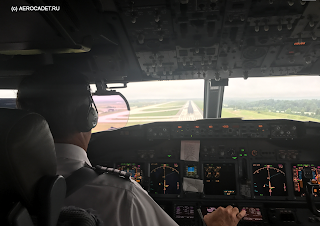Many group members ask: what kind of schedule am I to expect once I get my dream airline pilot job? Well, here is some background information on that question.
A pilot's schedule depends greatly on (1) seniority and (2) whether they are a commuter or not.
The primary consideration for anything in an airline pilot's life is seniority. A pilot who is at the top of the seniority list can generally get whatever they want in terms of schedule, while a junior pilot will have little ability to gain desireable days off (weekends, holidays, family events, etc).
At most major US or EU airlines, a large portion of the pilot group based in a particular city does not actually live in that city. For instance, a pilot may live in Minneapolis, MN, but be based in Houston, TX, or live in London, England, but be based in Madrid, Spain. Given some of the undesirable locations that airlines locate hubs, it is little wonder that upwards of 50% of pilots in some hubs choose to commute.
Pilots who commute generally will want to do multi-day trips, where they can arrive for work on one day, spend several days flying, and then commute home at the end of that trip. On the other hand, a pilot who lives in his base will often prefer to do day trips or turns, where they can spend every night at home. But again, seniorty will dictate whether a pilot will be able to get the type of trips desired. A junior pilot would be very unlikely to be scheduled for day trips that would allow him/her to be home every night.
Commuting for such trip purposes is called "jump-seating". It's always free of charge and available with many airlines, regardless of what airline a pilot works for.
Pilots who work in Asia on contracts have a more flexible option of commuting: if a contract pilot's domicile is, let's say, Tel Aviv, Israel, and he wants to remain a resident at this domicile, pilot has an option to select such contract that will allow him retain Israeli residency. For example, many Chinese companies offer a month on / month off contract, with guaranteed business class commute to and from pilot's country of residence. Naturally, such contract will be offered with a 30% reduction in estimated annual pay, but is it a great option if a pilot does not want to live abroad full time. A good example is Air China Express, that offers commuter contracts at $180,000 per yet.
To find out more, please sign up to visit our free seminar in Tel Aviv on August 4th.
Registration available here:
air-ferry.com/seminars
air-ferry.com/seminars

Comments
Post a Comment